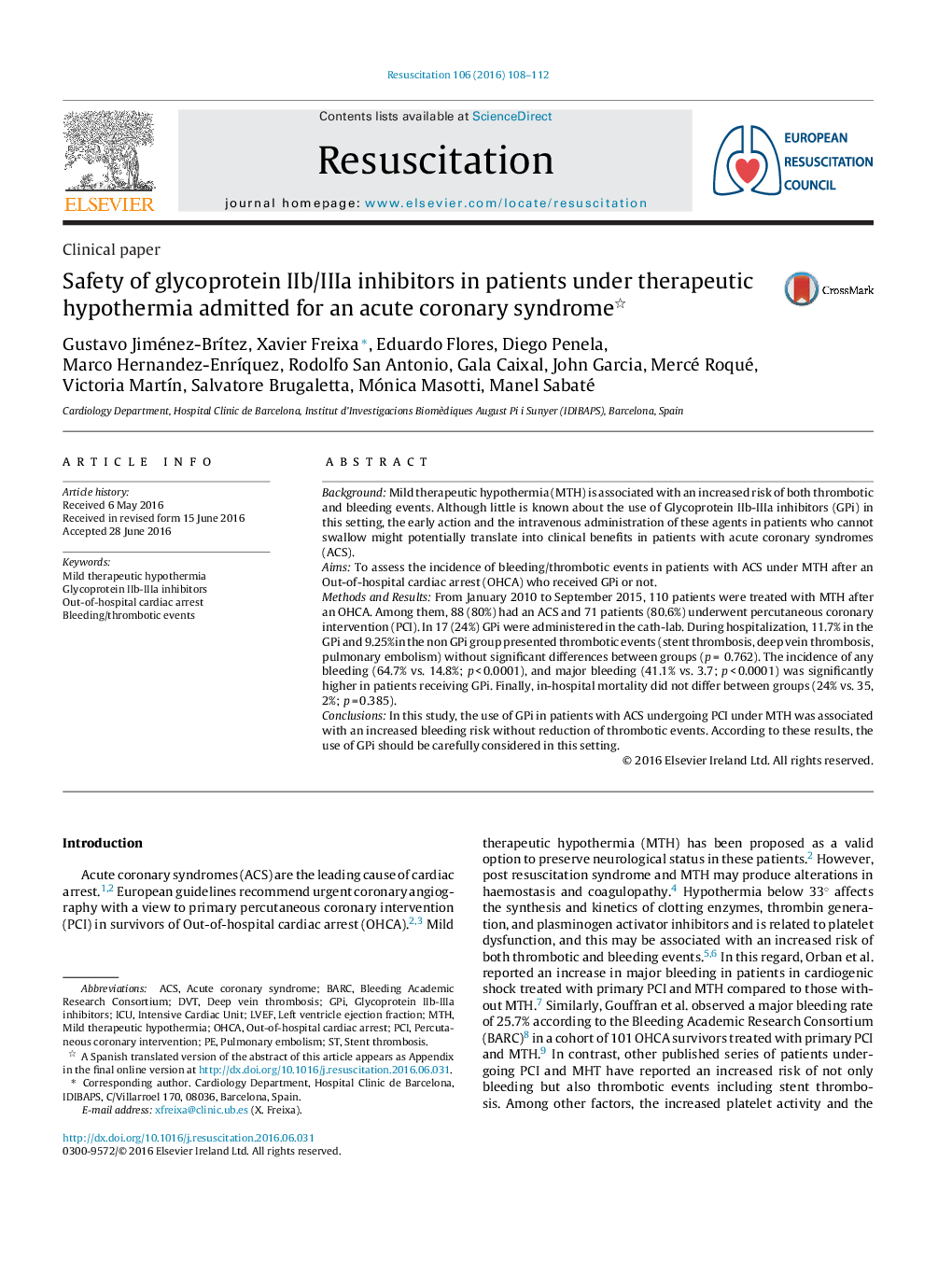| Article ID | Journal | Published Year | Pages | File Type |
|---|---|---|---|---|
| 5997096 | Resuscitation | 2016 | 5 Pages |
BackgroundMild therapeutic hypothermia (MTH) is associated with an increased risk of both thrombotic and bleeding events. Although little is known about the use of Glycoprotein IIb-IIIa inhibitors (GPi) in this setting, the early action and the intravenous administration of these agents in patients who cannot swallow might potentially translate into clinical benefits in patients with acute coronary syndromes (ACS).AimsTo assess the incidence of bleeding/thrombotic events in patients with ACS under MTH after an Out-of-hospital cardiac arrest (OHCA) who received GPi or not.Methods and ResultsFrom January 2010 to September 2015, 110 patients were treated with MTH after an OHCA. Among them, 88 (80%) had an ACS and 71 patients (80.6%) underwent percutaneous coronary intervention (PCI). In 17 (24%) GPi were administered in the cath-lab. During hospitalization, 11.7% in the GPi and 9.25%in the non GPi group presented thrombotic events (stent thrombosis, deep vein thrombosis, pulmonary embolism) without significant differences between groups (p = 0.762). The incidence of any bleeding (64.7% vs. 14.8%; p < 0.0001), and major bleeding (41.1% vs. 3.7; p < 0.0001) was significantly higher in patients receiving GPi. Finally, in-hospital mortality did not differ between groups (24% vs. 35, 2%; p = 0.385).ConclusionsIn this study, the use of GPi in patients with ACS undergoing PCI under MTH was associated with an increased bleeding risk without reduction of thrombotic events. According to these results, the use of GPi should be carefully considered in this setting.
